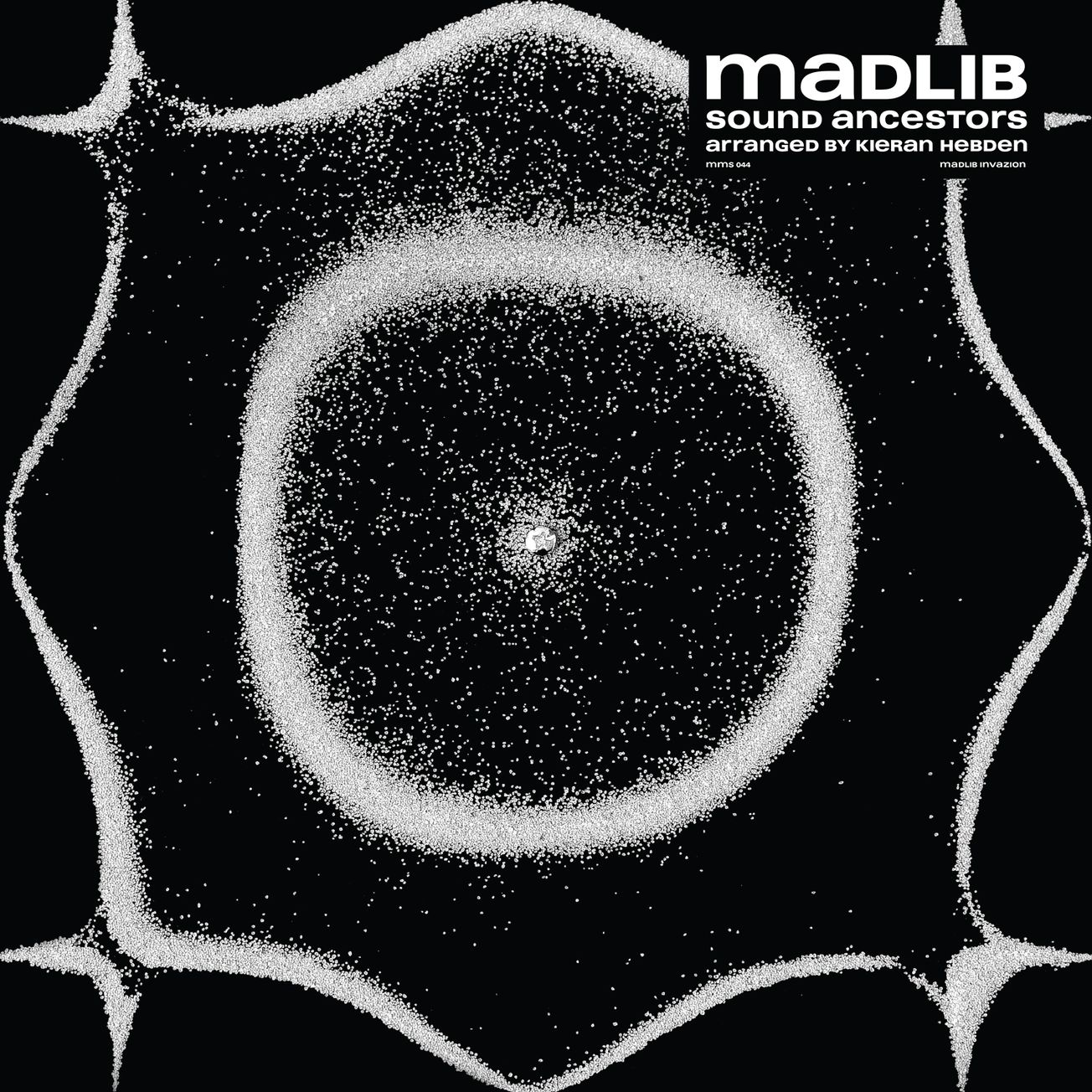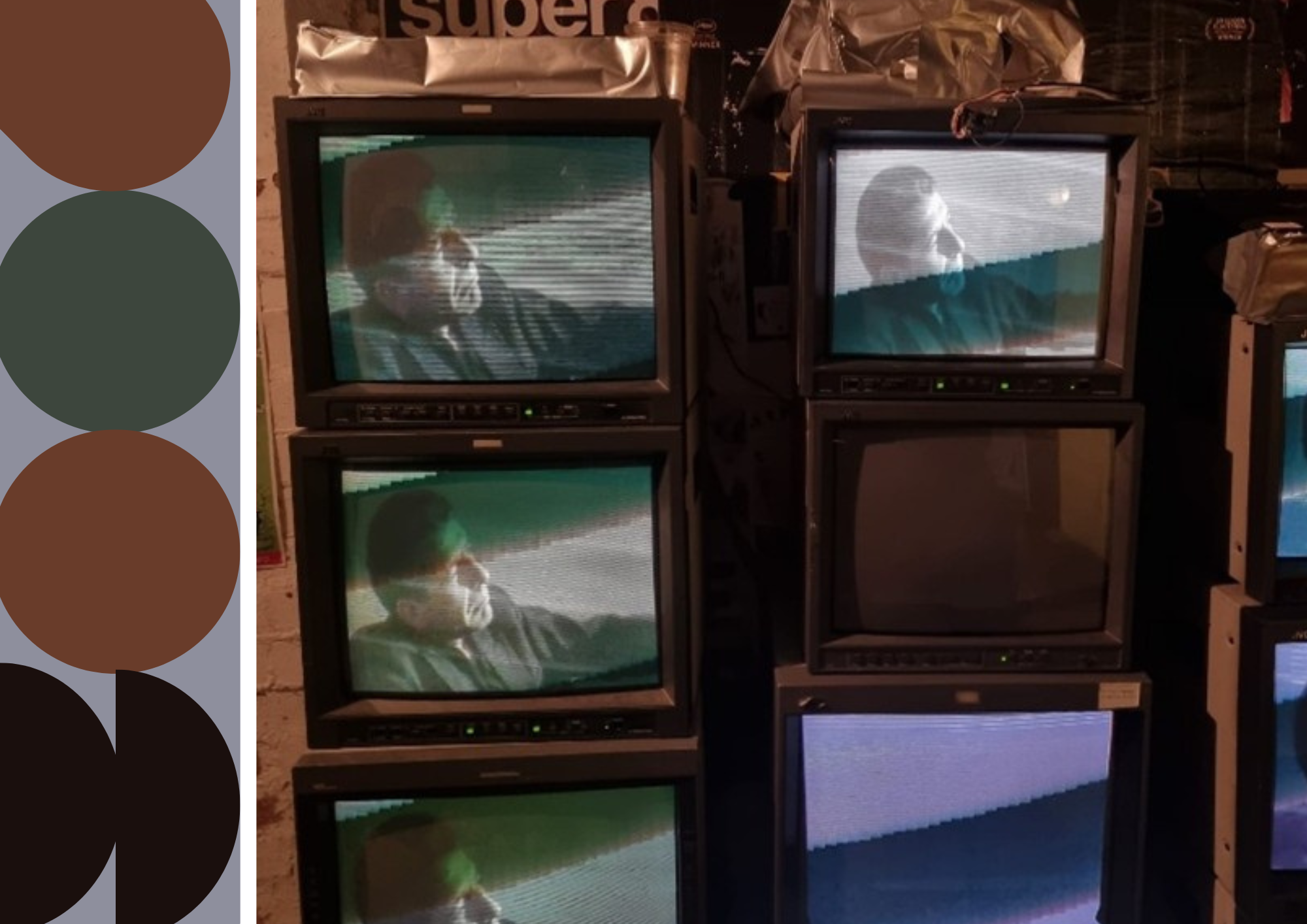By Ally Chapman, First Year Politics and International Relations
Madlib takes centre stage on Sound Ancestors - both a eulogy to the golden age of hip hop and a bold mission statement for where it can still go.
The Twilights were an Australian rock band - a modestly successful one in their home country, but unknown elsewhere - who gained notoriety for covering hit songs like ‘(I Can’t Get No) Satisfaction’, ‘Sunshine Of Your Love’ and ‘Purple Haze’. A simple formula, but one sold by the group’s renowned sense of humour and infectious, energetic personality. Eventually the group split up but remained in the public consciousness enough that two compilations of their covers and original songs were issued at the turn of the 80s.
The first few seconds of one of those original songs, ‘Bargain Day’, makes up the majority of the first track of Sound Ancestors. ‘The Call’ is pounding, psychedelic yet minimal - derived entirely from a song that was only just known enough to make it onto that obscure band’s greatest hits compilation as a bonus track. Here lies the power of Madlib - the potential to see diamonds in the rough and expose them. ‘The Call’ is one of the best on this record, and it’s derived from something that would otherwise remain forgotten. Just like The Twilights, Madlib is no stranger to extracting the maximum potential of the work he admires and does so more often than any other producer in hip hop.
Ostensibly his debut solo album, Sound Ancestors follows a staggering 22 beat tape from the juggernaut producer, and Madlib promises more material later this year. This album remains a risk: Otis Jackson Jr (Madlib) has always hidden behind a concept or a close collaborator. Out of his three closest musical partners, two, J Dilla and MF DOOM, are now deceased. His latest foil Freddie Gibbs, known for trap music before his unlikely-but-successful partnership with Madlib, should have yielded a modernisation for the acclaimed producer on paper. However, he doubled down on his style of abstract boom-bap to even further praise. If this is a late-career manifesto, a taking of centre stage for the previously reclusive musician, it’s one that strongly reiterates the values he has carried throughout his 25-year career.
Sound Ancestors threatened to be just another collection of beats, but each track is more structured and layered than anything on the Beat Konducta tapes. Nothing here is a simple loop - every track builds and changes and twists and contorts, even though they seldom take over three minutes to do so.
‘Dirtknock’ features fractured, un-quantised drums over a loose, dirty bass line reminiscent of his beat for MF DOOM’s track ‘Figaro’, and ‘Hang Out (Phone Off)’ reads like a wonky tribute to J Dilla much more than the track named after him. Because the music finally has the spotlight, Madlib seizes the opportunity to develop his sound palette beyond what he ever did in a supporting role - like a great actor finally getting the lead part.

Standout track ‘Road Of The Lonely Ones’ reads like a reflection of the path he’s taken, so often independent of what everyone around him was pursuing and therefore resulting in innovation during the last days of hip hop’s golden age only surpassed by J Dilla. Rolling, crisp drums and mournful, muted soul backing vocals fall away for a single guitar and strained lead vocal, going back and forth. The highs and lows of the cut form one of the most reflective beats of Madlib’s career.
First single ‘Hoprock’ matches the restrained urgency of Fela Kuti’s slower material more than the glossy, lethargic hedonism of many stock modern trap beats; a single guitar string, a limping drum beat, some claps, vocal stabs and an occasional bass line are all Madlib needs to create an atmosphere unparalleled by almost anybody who would dare to match him. Sound Ancestors is minimalist, but you wouldn’t realise until you start dissecting it because of the sheer weight of the moods it creates and conveys.
One of Madlib’s strengths is being able to get different results while appearing to use the same methods for creation - so often musicians feel the need to radically change their personnel, equipment or budget to evolve, but Madlib seemed content sticking with a trusted sampler. On his latest MadGibbs album, Bandana, he even introduced further limitations to himself, working exclusively on an iPad. His skill is demonstrated in that it is impossible to tell what is sampled and what is original material – ‘Situations’ and the first half of ‘Fake Names’, two of the best beats on Bandana, feature no samples at all.
The second half of Sound Ancestors dips more explicitly into spiritual jazz than anything Madlib has done before; the title track sounds more like Eric Dolphy’s opus Out To Lunch than anything resembling hip hop. Whilst album closer ‘Duumbiyay’ takes a simple vocal sample and turns it into an infectious groove that comes close to an airy take on the late work of Afrobeat legend Tony Allen. Neither of these tracks feature samples besides ‘Duumbiyay’’s vocal loop - further blurring the lines between Madlib’s original composition and that of those he’s sampled.
While it seems irrelevant at first, the title of this album is a perfect summary of a concept silently communicated throughout this record. By his own admission in a recent Guardian interview, Madlib’s life has been defined by death. Both of Otis Jackson Jr's parents were musicians; many of Madlib’s major influences are long deceased. The album is a celebration of Jackson’s ‘sound ancestors’ - the people who defined him and influenced him, the people who he now samples. It’s a continuation of the path they went down while he simultaneously continues to break new ground.
The album is deeply rooted in the culture of the African-American community, indeed, African-American counterculture. It’s a fusion of community, a reflection of everything its lost members contributed to the world of music and art. Madlib’s continued tribute to his close friend Dilla - the triumphant ‘Two For 2 (For Dilla)’ is far from the first track he’s named after the late producer. Not a funeral, but a celebration of the legacy all of his departed heroes have left behind, both buoyant and mournful. It’s poetic irony that MF DOOM also passed away during this album’s rollout; through being a mediation on all the musicians that came before Madlib, it becomes an accidental tribute to him. The silence in this album is intended to let the music shine, but it’s also a reminder of what’s now missing. How lucky are we that Madlib is here, and making music. If he wasn’t one of the greatest of all time before making a solo debut, Sound Ancestors cements his legacy.
Celeste - 'Not Your Muse' Review
Arlo Parks - 'Collapsed in Sunbeams' Review
Featured Image: Courtesy of Rappcats
Have you listened to Sound Ancestors yet?









